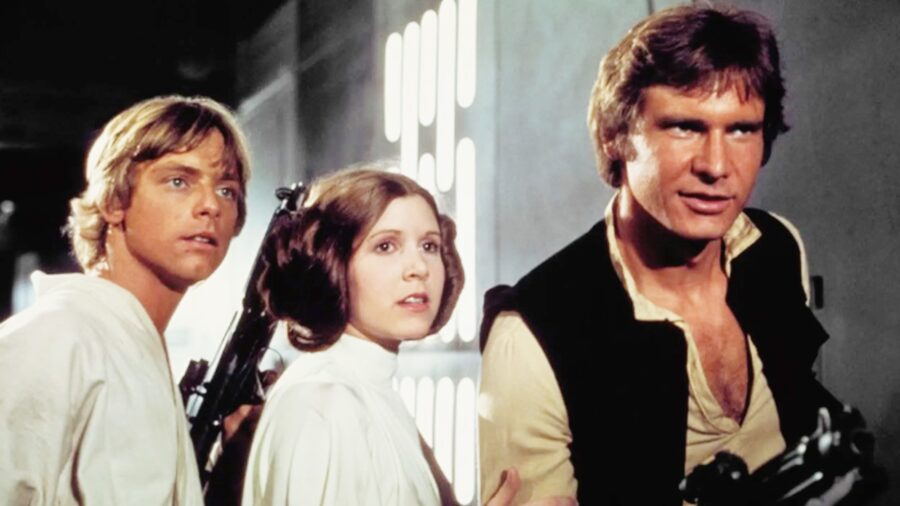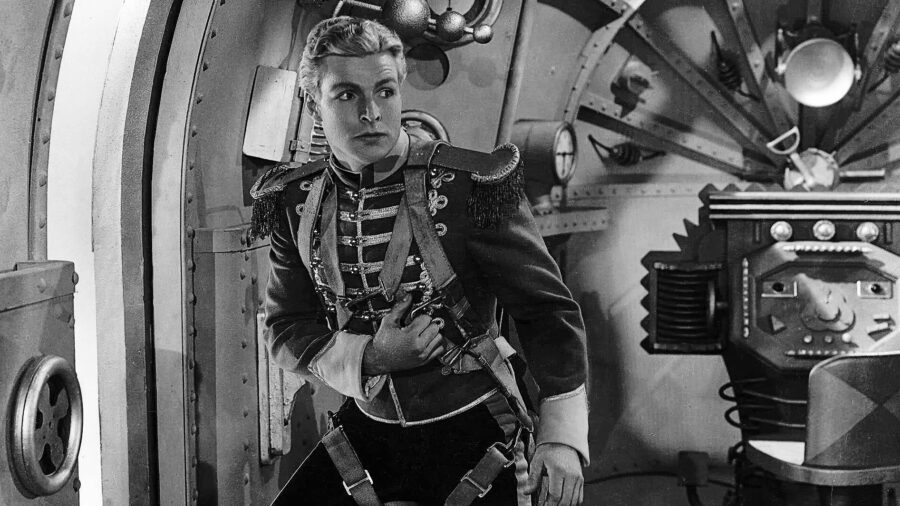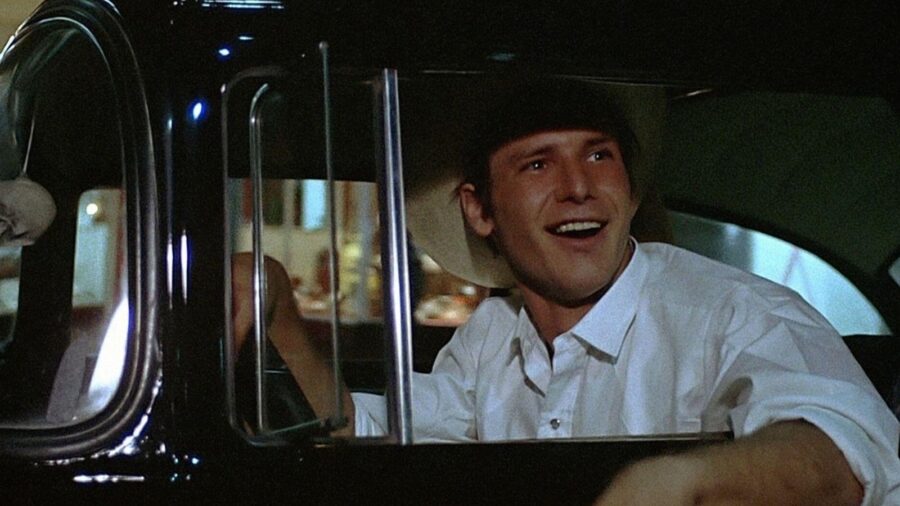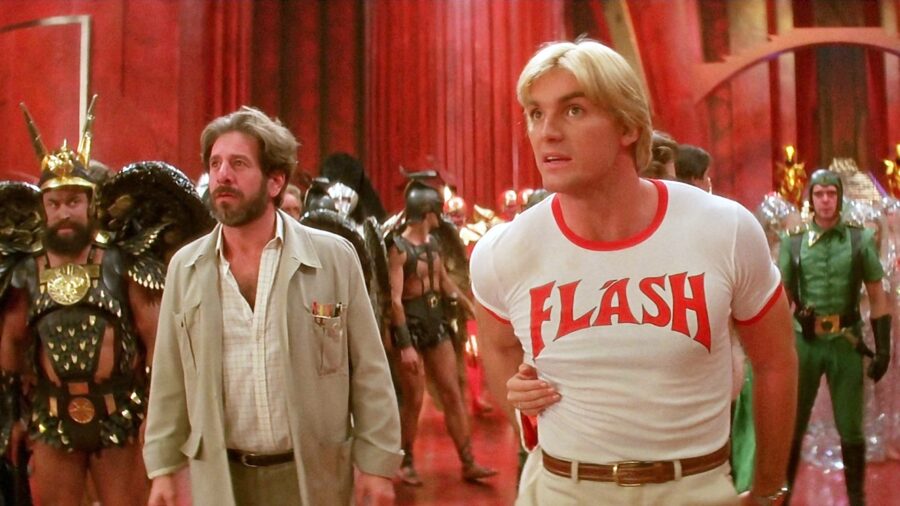Star Wars Only Happened Because Of A Notorious Sci-Fi Flop
Star Wars as we know it would never have happened if it weren't for one very notorious science fiction flop.
This article is more than 2 years old

There is no grander, greater name in all of science fiction than Star Wars. With great respect to the Star Trek franchise and a slightly smaller amount to Stargate, Star Wars is one of the most successful multimedia franchises of all time. As of 2020, the franchise had raked in over $70 billion dollars in combined revenue (and is likely significantly higher since the recent explosion of popular Disney+ shows), but none of that would not have been possible if not for a particularly bad, mishandled science fiction franchise. We are, of course, talking about Flash Gordon. While the origins of the other big George Lucas franchise, Indiana Jones, as a homage to early adventure serial films is widely known, Star Wars was also directly inspired by a serial series (itself based on a comic strip). The only reason why Star Wars got made? George Lucas could not get the rights to Flash Gordon.

In 1971, a young filmmaker named George Lucas had just completed his first film, an artsy science fiction movie titled THX 1138. It had been developed from a short he had made while a student at the University of Southern California (itself titled the more grandiose Electronic Labyrinth: THX 1138 4EB), and had ceased to make a dent in the box office or with critics. In response, he began working on a treatment for a film inspired by his own early life in Southern California that would later become the unexpected blockbuster film American Graffiti (featuring a fresh-faced Harrison Ford in an early role). At the same time, he hit upon a simple idea: why not make a feature film adaptation of his childhood favorite, Flash Gordon?

The problem was getting the rights to make Flash Gordon. In what sounds like an interesting road trip, George Lucas and his mentor Francis Ford Coppola took a detour from getting financing for American Graffiti and visited King Features Syndicate, which owned the rights for Flash Gordon. However, they were told that the syndicate was looking for more of a Federico Fellini (the acclaimed Italian fantasy director) type, and furthermore, they wanted a staggering 80% of the grosses. This made George Lucas’ Flash Gordon a dead project and threw him into a deep depression. The solution: Star Wars.
According to George Lucas himself, Star Wars was basically his solution to not being able to license the rights for the project he actually wanted to do. He managed to speak to Flash Gordon creator Alex Raymond and realized that the cartoonist had himself formed his most famous work from inspirations like the John Carter of Mars books and Jules Verne. Basically, Star Wars is what happened when Lucas discovered that he did not actually have to adapt a specific work, but could synthesize all the things that had inspired that work to begin with. Seventy billion dollars later, Star Wars seems to have worked out pretty well for that.

Ironically, a Flash Gordon movie did end up being licensed by famed Italian film producer Dino De Laurentiis. It was released in December of 1980, months after The Empire Strikes Back took Star Wars to a new critical and popular level, and flopped hard. In large part, that has to do with De Laurentiis himself. Though the movie was directed by Mike Hodges and written by Lorenzo Semple Jr., the fingerprints of De Laurentiis are all over it. While the original comic strip and the serials based on it were adventure tales, it seems the producer became fixated on the “comic” aspect of “comic strip” and insisted Flash Gordon have a comedic tone that did not land with audiences or critics. While it has since built a cult following, it is fair to say the impact of the 1980 Flash Gordon was a fraction of that of Star Wars.
It is one of the great “what if” scenarios of pop culture to wonder what would have resulted if George Lucas had managed to get the rights to Flash Gordon. Would it have become the pop culture behemoth of Star Wars? Would Lucas have had the ability (or forethought) to retain the merchandise rights that made him a billionaire? Who can say. But in many ways, Star Wars owes its existence to a comic strip syndicate that stuck to its guns when it came to film rights, and only ended up with a Dino De Laurentiis flop for it.












